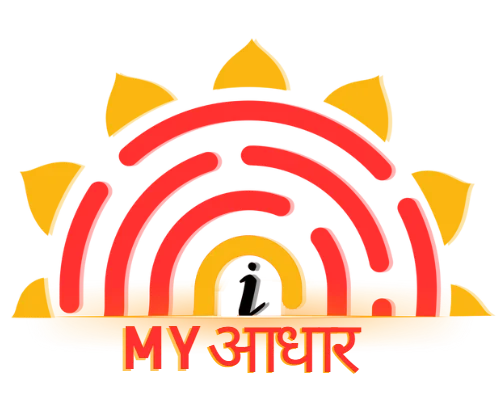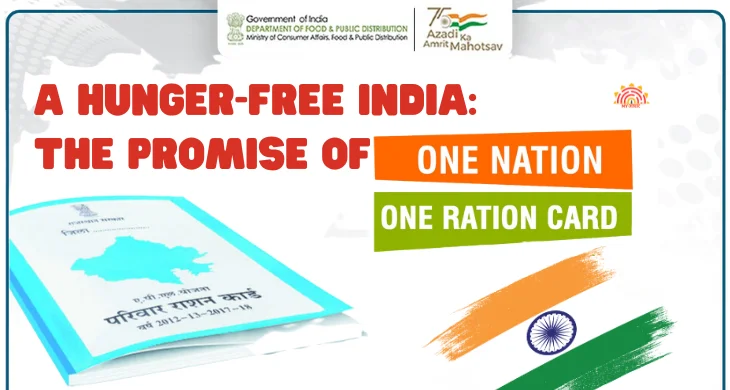In a nation as diverse as India, where millions grapple with food insecurity and poverty, ensuring access to essential food supplies is a moral imperative. The ‘One Nation, One Ration Card’ initiative is a groundbreaking scheme that holds the promise of transforming India into a hunger-free nation. In this comprehensive blog, we’ll explore the significance of this initiative, its objectives, implementation, and the impact it can have on the lives of millions.
The Challenge of Food Insecurity in India:
Food insecurity in India is a multifaceted challenge that stems from various factors and affects a significant portion of the population. It refers to the lack of reliable access to sufficient, safe, and nutritious food that meets the dietary needs and preferences of individuals and households. Understanding the complexity of food insecurity in India requires examining several key aspects:
1. High Population Density: India is one of the most populous countries globally, with over 1.3 billion people. The sheer size of the population poses a challenge in ensuring equitable food distribution and access to every individual.
2. Economic Disparities: Income disparities in India are substantial. A significant portion of the population lives below the poverty line, making it challenging for them to afford an adequate diet.
3. Agricultural Practices: India’s agriculture sector is diverse but faces challenges such as outdated farming practices, land fragmentation, and vulnerability to weather-related risks, affecting crop yields and food production.
4. Supply Chain Issues: The food supply chain in India faces inefficiencies, including post-harvest losses, inadequate cold storage facilities, and transportation bottlenecks. These factors contribute to food wastage and price volatility.
5. Vulnerable Populations: Vulnerable groups, such as marginalized communities, tribal populations, and rural households, are particularly susceptible to food insecurity due to limited access to resources and social services.
6. Malnutrition: Malnutrition is a prevalent issue, with high rates of undernutrition among children and adults, coexisting with a rising burden of diet-related non-communicable diseases.
Addressing food insecurity in India requires a comprehensive approach that encompasses agricultural reforms, equitable distribution, poverty reduction, improved healthcare, and climate resilience. Initiatives like ‘One Nation, One Ration Card’ play a crucial role in ensuring that food reaches those who need it the most, contributing to the broader goal of a hunger-free India.
The Idea Behind ‘One Nation, One Ration Card’:
The ‘One Nation, One Ration Card’ (ONORC) initiative represents a visionary approach to transform India’s public distribution system (PDS) and food security landscape. This innovative program has several key elements that define its vision:
- Portability: The core idea of ONORC is to make ration cards portable across the country. This means that beneficiaries can access their entitled food rations from any Fair Price Shop (FPS) in India, regardless of their location or the state where their ration card was issued. It eliminates the need for multiple ration cards when beneficiaries move or migrate for work, ensuring food security during such transitions.
- Reduction in Leakages: One of the primary objectives of ONORC is to reduce leakages and inefficiencies in the PDS. By eliminating duplicate ration cards and ghost beneficiaries, the program aims to ensure that food grains reach the intended beneficiaries without diversion or corruption. This reduction in leakages not only saves government resources but also enhances the effectiveness of food distribution.
- Inclusivity: ONORC places a strong emphasis on inclusivity. It strives to include all eligible beneficiaries in the PDS, preventing exclusion errors that often leave vulnerable individuals and families without access to subsidized food. By leveraging technology and Aadhaar-linked identification, ONORC aims to ensure that no one is left behind in the quest for food security.
- Real-time Tracking: Advanced technology plays a pivotal role in the vision of ONORC. Beneficiaries’ ration cards are linked to their Aadhaar numbers, and biometric authentication is used for verification at FPSs. This real-time tracking of food distribution not only enhances transparency but also enables authorities to monitor the delivery of essential supplies closely.
- Simplified Processes: ONORC envisions a simplified and hassle-free process for beneficiaries. It reduces paperwork and bureaucracy, making it easier for individuals and families to avail themselves of their entitled food rations. The use of technology streamlines the process, reducing the time and effort required to access benefits.
- Expansion and Evolution: The vision of ONORC extends beyond its initial implementation. It aims to expand its coverage across the entire nation and evolve continuously to meet the changing needs of beneficiaries. This adaptability ensures that the program remains effective and relevant over time.
Overall, the vision of ‘One Nation, One Ration Card’ is centered on equitable access to food for all citizens of India, regardless of their geographical location or socio-economic background. It combines technology, efficiency, and inclusivity to create a system that can serve as a model for addressing food insecurity in the country. ONORC is not just about providing rations; it’s about ensuring dignity, nutrition, and a better quality of life for millions of Indians.
Implementation and Progress of ‘One Nation, One Ration Card’:
The implementation of the ‘One Nation, One Ration Card’ (ONORC) initiative in India has been a significant step toward achieving food security and ensuring equitable access to essential food supplies for all citizens, irrespective of their location within the country. This section explores the progress and key developments in the implementation of ONORC:
1. Pilot Projects: The ONORC initiative began as pilot projects in a few states to test its feasibility and functionality. These early projects helped identify challenges and refine the implementation process.
2. Aadhaar Integration: A crucial component of ONORC is the integration of Aadhaar, India’s unique identification system, with ration cards. Beneficiaries’ Aadhaar numbers are linked to their ration cards to facilitate biometric verification at Fair Price Shops (FPSs).
3. Technological Infrastructure: The success of ONORC relies heavily on a robust technological infrastructure. State governments and the central government have invested in building the necessary IT systems and infrastructure to support the initiative.
4. Expansion Across States: The program’s implementation has gradually expanded to cover more states and Union Territories across India. It aims to provide nationwide coverage, allowing beneficiaries to access their rations anywhere in the country.
5. Real-time Tracking: The use of technology enables real-time tracking of food distribution at FPSs. This feature enhances transparency and accountability, reducing the likelihood of diversion or corruption in the distribution process.
6. Beneficiary Awareness: Implementing agencies have undertaken awareness campaigns to educate beneficiaries about the benefits and processes of ONORC. This includes informing them about their rights, the portability of ration cards, and the use of Aadhaar for verification.
Impact of ‘One Nation, One Ration Card’ on Beneficiaries:
The ‘One Nation, One Ration Card’ (ONORC) initiative has the potential to bring about transformative changes in the lives of beneficiaries across India. Its impact extends to various aspects of their well-being and quality of life:
1. Food Security: Perhaps the most immediate and significant impact is on food security. Beneficiaries can access their entitled food rations seamlessly, regardless of their geographical location. This ensures that individuals and families have a reliable source of nutrition, reducing the risk of hunger and malnutrition.
2. Mobility and Migration: ONORC is particularly beneficial for migrant workers and their families. It allows them to avail themselves of their rations wherever they are working or residing temporarily. This mobility support ensures that the transient nature of work does not compromise their access to essential food supplies.
3. Reduced Corruption: The implementation of biometric authentication and real-time tracking significantly reduces corruption and leakages in the Public Distribution System (PDS). Food grains reach beneficiaries without diversion, ensuring that government resources are used efficiently.
4. Inclusivity: ONORC’s focus on inclusivity means that eligible beneficiaries are less likely to face exclusion errors. Vulnerable populations, including marginalized communities and rural households, benefit from improved access to subsidized food.
5. Simplified Processes: The initiative streamlines the process of availing ration benefits. Beneficiaries encounter reduced paperwork, administrative hassles, and bureaucratic hurdles. The use of technology makes the process more user-friendly and efficient.
6. Dignity and Empowerment: Access to subsidized food through ONORC enhances the dignity and empowerment of beneficiaries. They no longer need to rely on intermediaries or face the risk of being denied their rightful rations. This empowerment contributes to their overall well-being.
FAQS:
Ques: What is the ‘One Nation, One Ration Card’ initiative?
Ans: The ‘One Nation, One Ration Card’ initiative is a government program in India that aims to provide food security by allowing beneficiaries to access their entitled food rations from any location in the country, irrespective of their state of residence.
Ques: Why is the ‘One Nation, One Ration Card’ initiative significant?
Ans: This initiative is significant because it addresses food insecurity by ensuring portability of ration cards, reducing leakages in the Public Distribution System (PDS), and promoting inclusivity, ultimately aiming for a hunger-free India.
Ques: How does ‘One Nation, One Ration Card’ work?
Ans: It operates on the Aadhaar-enabled Payment System (AePS), linking beneficiaries’ Aadhaar-linked ration cards for biometric verification at Fair Price Shops (FPSs). This ensures secure and transparent transactions.
Ques: What are the key benefits of the initiative for beneficiaries?
- Food Security: Beneficiaries can access their entitled food rations promptly, preventing hunger and malnutrition.
- Mobility: Migrant workers and families can avail themselves of rations anywhere in the country.
- Reduced Corruption: Real-time tracking and biometric authentication reduce corruption.
- Inclusivity: The system aims to include every eligible beneficiary, minimizing exclusion errors.
Ques: Is Aadhaar mandatory for availing benefits under this scheme?
Ans: While Aadhaar linking is a part of the initiative for biometric verification, alternative identification methods are also available for those without Aadhaar.
Conclusion:
The ‘One Nation, One Ration Card’ initiative is a remarkable step toward a hunger-free India. It combines technology, efficiency, and inclusivity to ensure that no citizen goes hungry. As the scheme continues to expand and evolve, it has the potential to uplift millions from the depths of poverty and malnutrition, ultimately shaping a more equitable and prosperous India. It’s a promise of a brighter, hunger-free future for the nation.

